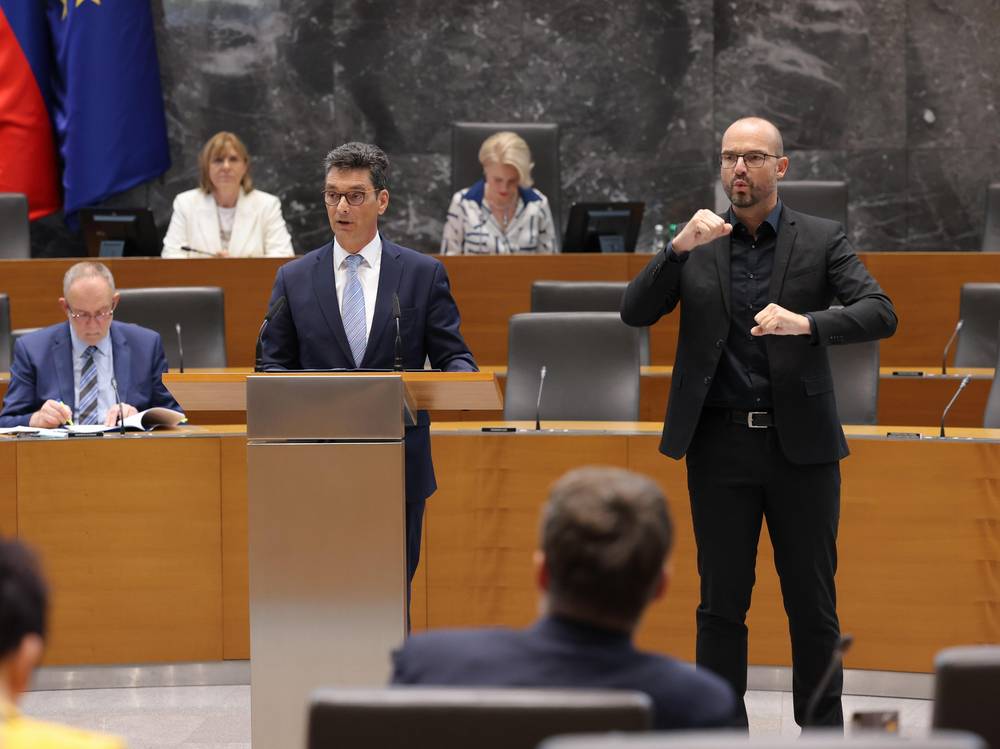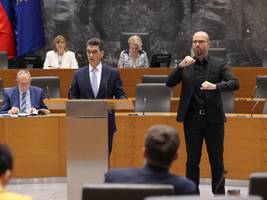On 18 October 2023, the National Assembly of the Republic of Slovenia discussed the 28th Annual Report of the Human Rights Ombudsman and the Report on implementation of tasks and authorisations of the National Preventive Mechanism in 2022.
Last year, the Human Rights Ombudsman dealt with almost six thousand cases and found 222 violations of human rights, most among them again by the Ministry of Labour, Family, Social Affairs and Equal Opportunities, administrative units, Ministry of Health, municipalities, Inspectorate for the Environment, and centres for social work.
“Many complaints pertained to the unresponsiveness and frequently also arrogance of public bodies. Raising awareness among public officials about the duty of disclosure and the respect of the principle of good governance is essential. All public servants have a duty to respond to individuals within a reasonable time. We dealt with a complaint in which the Ministry of Culture did not respond to an application for seven years. We still only received a response after we sent them an urgent note. This kind of attitude is unacceptable from the state administration and public servants,” stressed Ombudsman Svetina initially.
He added that he has been hearing since the beginning of his term that the reason for numerous violations is the lack of qualified staff. “I do not accept such excuses. I expect that the bodies responsible tackle the systemic solving of these problems immediately and effectively and prepare a timeline which will not be constantly adjusted. Such an obvious example is the solving of the issue of the lack of court experts in family matters, which can lead to violation of rights and best interests of children. In the Annual Report we give the recommendation that the bodies responsible prepare a set of measures and a timeline for the implementation of this recommendation. In the field of justice, our recommendation for the provision of greater accessibility of free legal aid has not yet been implemented. There is also still no law which would comprehensively regulate the treatment of underage perpetrators of criminal offences. Hence, our numerous recommendations have remained unrealised for years. I would like to highlight that all Ombudsman’s recommendations stem from actual violations of rights of individuals, our research, and analyses,” explained Ombudsman Svetina at the session.
In the current report, the Ombudsman gives 83 new recommendations and warns about approximately 100 unrealised past recommendations, which remain current. It is evident from the government’s response report that of 75 of our recommendations pertaining to the government or its ministries no fewer than 10 are rejected. It can also be discerned from the government’s report how unsynchronised the positions of different ministries are, even contrary to each other, while the government as the collective body unfortunately does not cut this Gordian knot. I expect the government to establish coordination between individual governmental sectors and synchronise a unified position and a work plan for the realisation of our recommendations pertaining to several ministries. One such obvious example is the ping pong between the Ministry of Labour, Family, Social Affairs and Equal Opportunities and the Ministry of the Interior regarding our recommendation for the preparation of an amendment to the act concerning the legal recognition of gender,” criticised Svetina.
Regarding the elderly, the Ombudsman last year detected an increase in discrimination. “We dealt with a claim of discrimination when the elderly applied for a loan. Banks claimed that the practice of denying credit to “too old people” is based on an act of the Bank of Slovenia. We found that no such act exists. We continue to deal with this issue intensively,” said the Ombudsman.
The institution of the Human Rights Ombudsman last year continued to deal with numerous cases concerning the rights of children. “We have been warning for years about the lengthy legal proceedings since they affect children much more negatively than they do adults. I once again emphasise as very critical the lack of court experts, especially clinical psychologists and child psychiatrists. We have detected more violence among young people and online and also peer violence, which we as a society must start dealing with effectively as soon as possible. All bodies have a duty to primarily protect the rights of children, including the right to be heard in all proceedings pertaining to them and their best interests to be taken into consideration,” added the Ombudsman.
In the field of environment, in addition to the issue of unresponsiveness of public bodies, the issue of noise was prevalent last year. Four years ago, the Ombudsman filed a claim for the estimation of the constitutionality and legality of the Decree on limit values for environmental noise indicators. Last year, in a separate proceeding, the Constitutional Court ruled that the aforementioned regulation is inconsistent with the Environmental Protection Act and Paragraph 2 of Article 120 of the Constitution, which stipulates that administrative bodies perform their work independently within the framework of the Constitution and laws. The deadline for the execution of the decision expired in July this year.
In the field of health, the institution of the Ombudsman warns that access to a doctor and the quality of treatment are key elements of public healthcare. “Yet the situation in the country in this field is estimated as very poor; while it is not improving, it even seems to be worsening from one year to the next. In many fields, we record a lack of specialists, and the number of deficient areas keeps increasing, while the most troubling thing is the lack of family doctors. Insured people do not have the same access to doctors, which is reflected in unacceptably long waiting times,” emphasised Svetina.
He also presented to the Members of National Assembly the Report of the National Preventive Mechanism (NPM) for 2022, which in that year visited 98 places of deprivation of liberty. “In 2022, we made topical visits to seven retirement homes with the purpose of determining the manner of protection at wards for people with dementia. It is still the case that residents of secured wards cannot leave the institution independently or by their own free will and are thus detained without the appropriate legal base. We have been warning against this grave violation of personal liberty for eight years. We have also warned centres for training, work, and care that users who cannot or must not leave the living quarters independently are actually placed in secure wards without a legal basis,” added Ombudsman Svetina during the presentation of the NPM report.”

